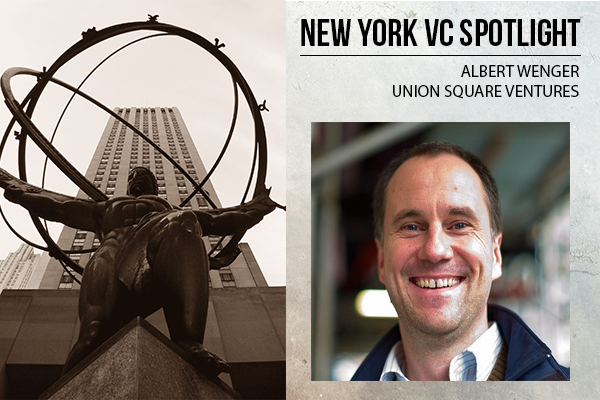Albert Wenger currently serves as a partner with Union Square Ventures, and has previously founded or co-founded five companies. Included in that list are companies that specialize in data analytics, investments, management consulting and more. Wenger’s most recent venture is a DailyLit, which he cofounded with his wife. His background in entrepreneurship spans ten years, and is the product of his foundation in technology, which includes degrees from Harvard in computer science and economics, and a Ph. D in Information Technology from MIT.
His investment activity includes angel investments in Etsy and Tumblr. He also served as president of del.icio.us prior to its sale to Yahoo.
Wenger currently sits on numerous boards, including Clickable, Heyzap, Foursquare, and Twilio. He has also taken an interest in EdTech, helping to pave the way for new technologies in interactive learning.
Angel Fund:
Partner at Union Square Ventures (Founded in 2003)
Sector Focus:
EdTech, E-Commerce, Social Networks, and Online Advertising
Selected Investments:
Tumblr, Etsy, Twitter, Heyzap, Twilio, Delicious, Plympton, Sift Science
Boards:
Covester
Foursquare
MongoDB, Inc.
amee
Twilio
Clickable
Edmodo
Shapeways
Heyzap
DailyLit
Etsy
Expertise Areas:
Economics, Computer Science, Information Technology, Management Consulting, Data Analytics.
Blogs, Twitter & Websites:
Memorable Quotes:
On how startups reflect their founders: “The No. 1 challenge in building a great company is understanding yourself. Most companies reflect the strengths and weaknesses of their founders. Those that are more mindful of their own strengths and weaknesses tend to build more balanced businesses.”
On the native revenue model: “Almost any business on the Internet, we believe, can have a native revenue model. The sponsored Tweets I see in my timeline right now tend to be from sponsors that I actually care about. That’s adding value. We want to give companies as much time as possible to go find the native revenue model.”
On privacy and the future of surveillance: Your privacy is, in fact, dead. There’s a start-up in New York that’s letting people turn their old Android phones into cameras that people can put out in their windows to film the streets to measure where people are walking. You’re going to be taped. You’re going to have an electronic footprint. It’s just a fact. The big question is: what do we do about it and how does government operate?




